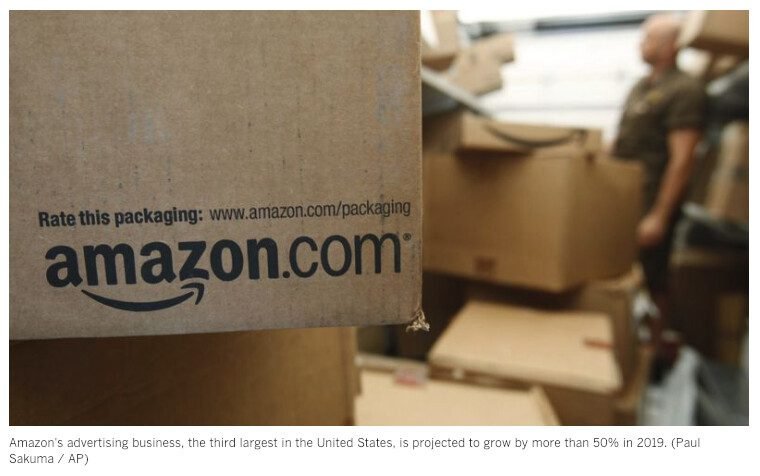
Digital advertising to surpass print and TV for the first time, report says
The money spent on digital advertising in the United States will surpass that on traditional ads for the first time this year, according to forecasts by eMarketer, representing a landmark inversion of how advertisers budget their resources and highlighting the rise of digital media as platforms to seek consumers’ attention.
By the end of the year, eMarketer expects companies to spend nearly $130 billion on digital ads, compared with about $110 billion on traditional advertisements, or about 54.2% of the ad market versus 46.8%, respectively. According to the research firm’s projections, spending on digital ads will continue to outpace that on traditional ads. By 2023, digital ads will capture more than two-thirds of all ad spending, according to the estimates.
The increase in digital ad dollars will come, in part, from sharp declines in key print ad formats including directories such as the Yellow Pages, whose ad spending will fall by 19%, and the print versions of newspapers and magazines where ad spending is expected to decrease by about 18%, eMarketer said. Ad spending on TV will decline 2.2% this year, to about $71 billion, eMarketer said, owing largely to the absence of elections and big sports events, such as the Olympics or World Cup.
“The steady shift of consumer attention to digital platforms has hit an inflection point with advertisers, forcing them to now turn to digital to seek the incremental gains in reach and revenue which are disappearing in traditional media advertising,” eMarketer’s forecasting director Monica Peart said in a statement.
The top two digital advertisers in the United States — Google and Facebook — are expected to maintain their dominant hold on ad dollars, as the tech giants’ combined ad revenue will command about 59% of the market, according to the forecasts. EMarketer projects Google’s share will drop slightly from 38.2% to 37.2%; Facebook’s share is expected to remain “virtually unchanged,” rising by less than half of a percentage point, from 21.8% to 22.1% this year.
While Facebook has been rocked by scandals,…

















